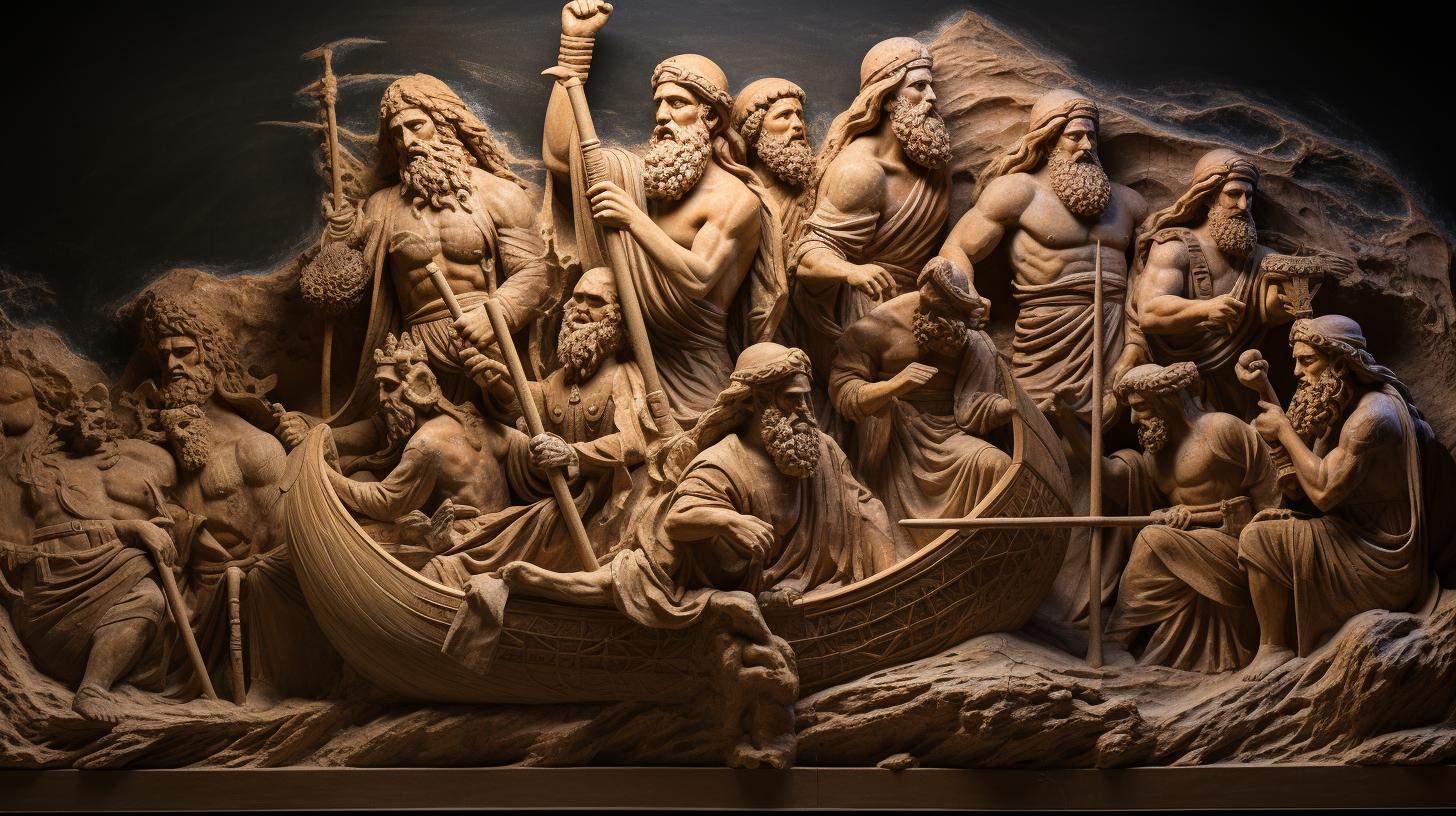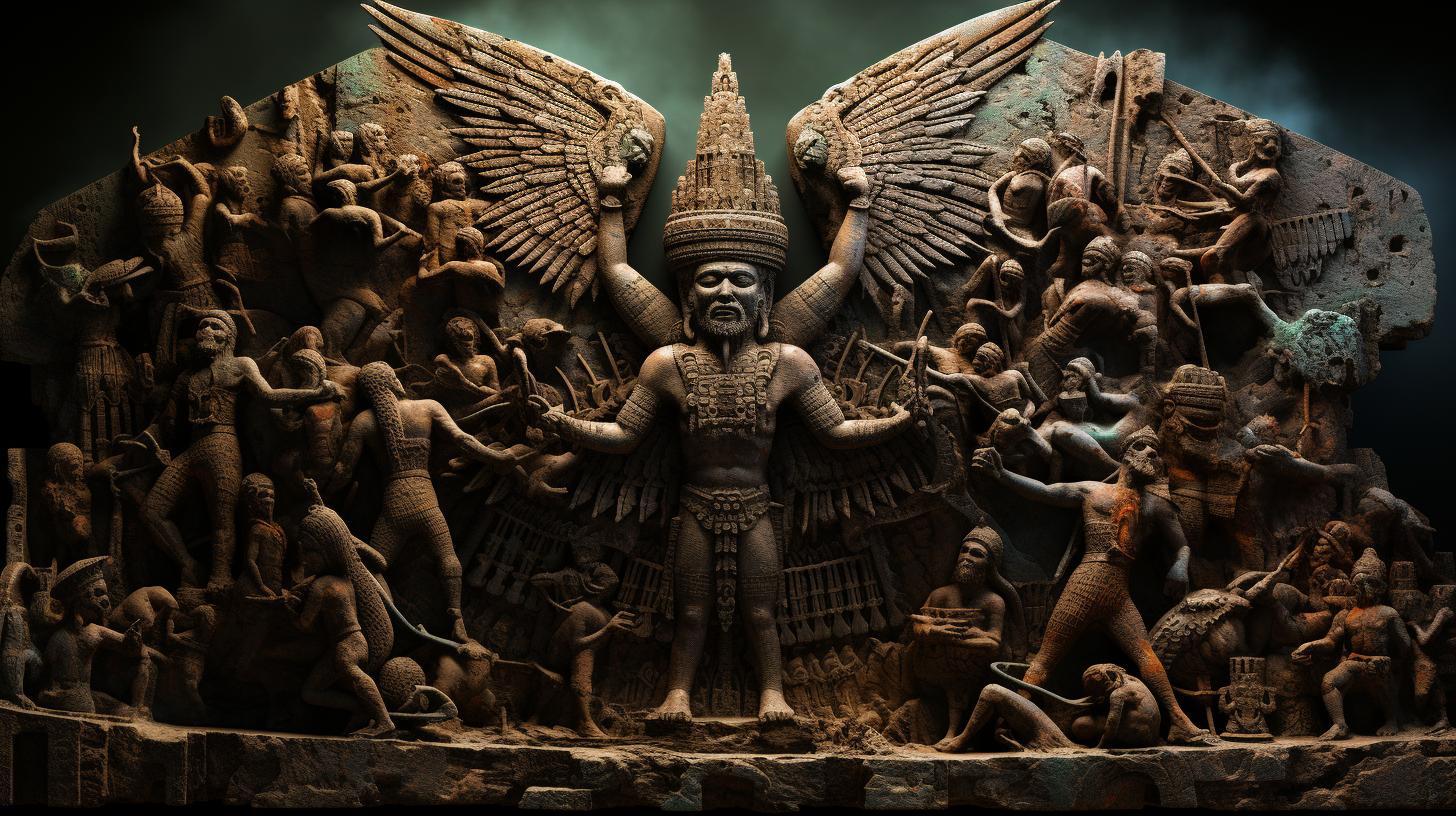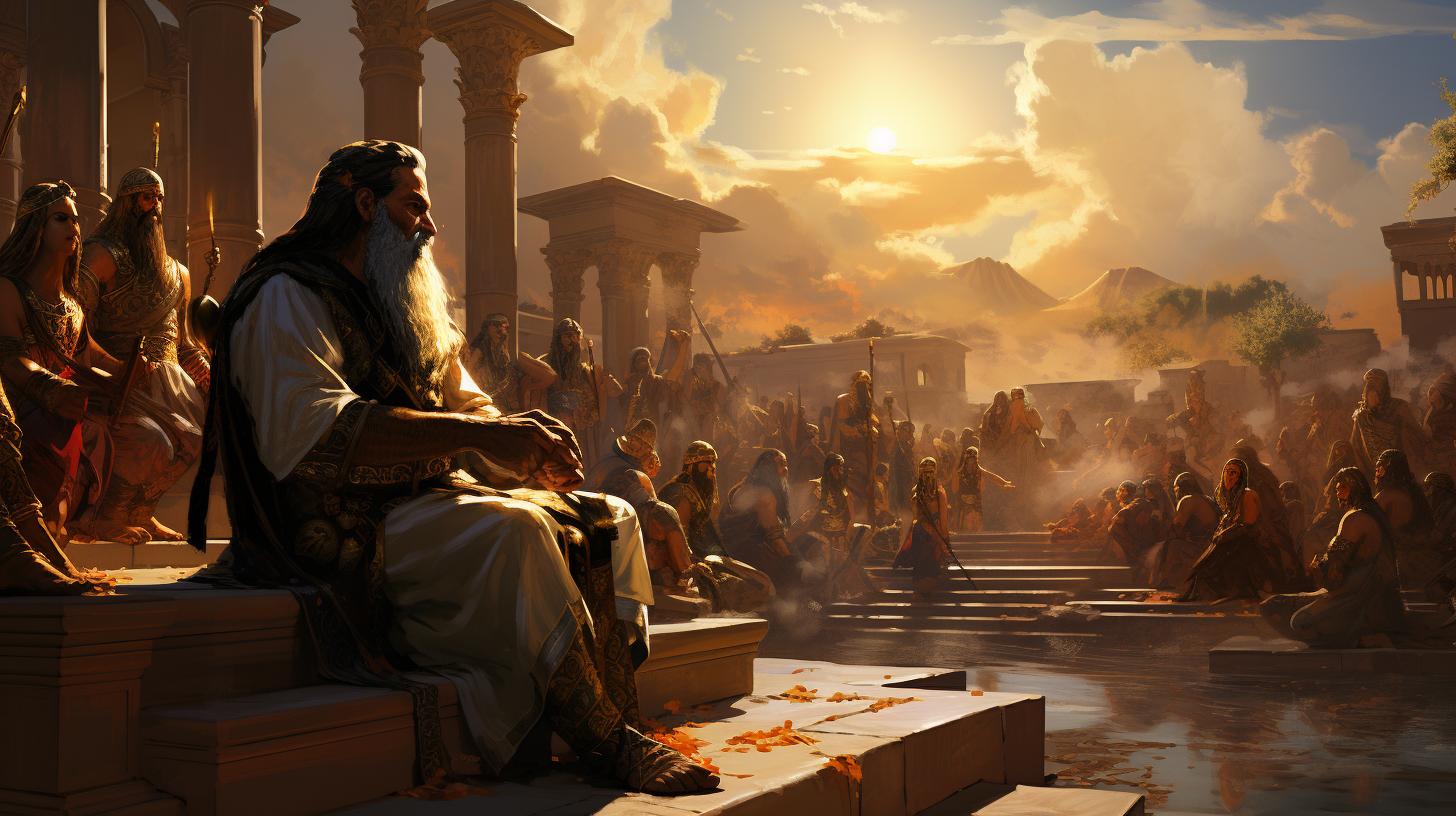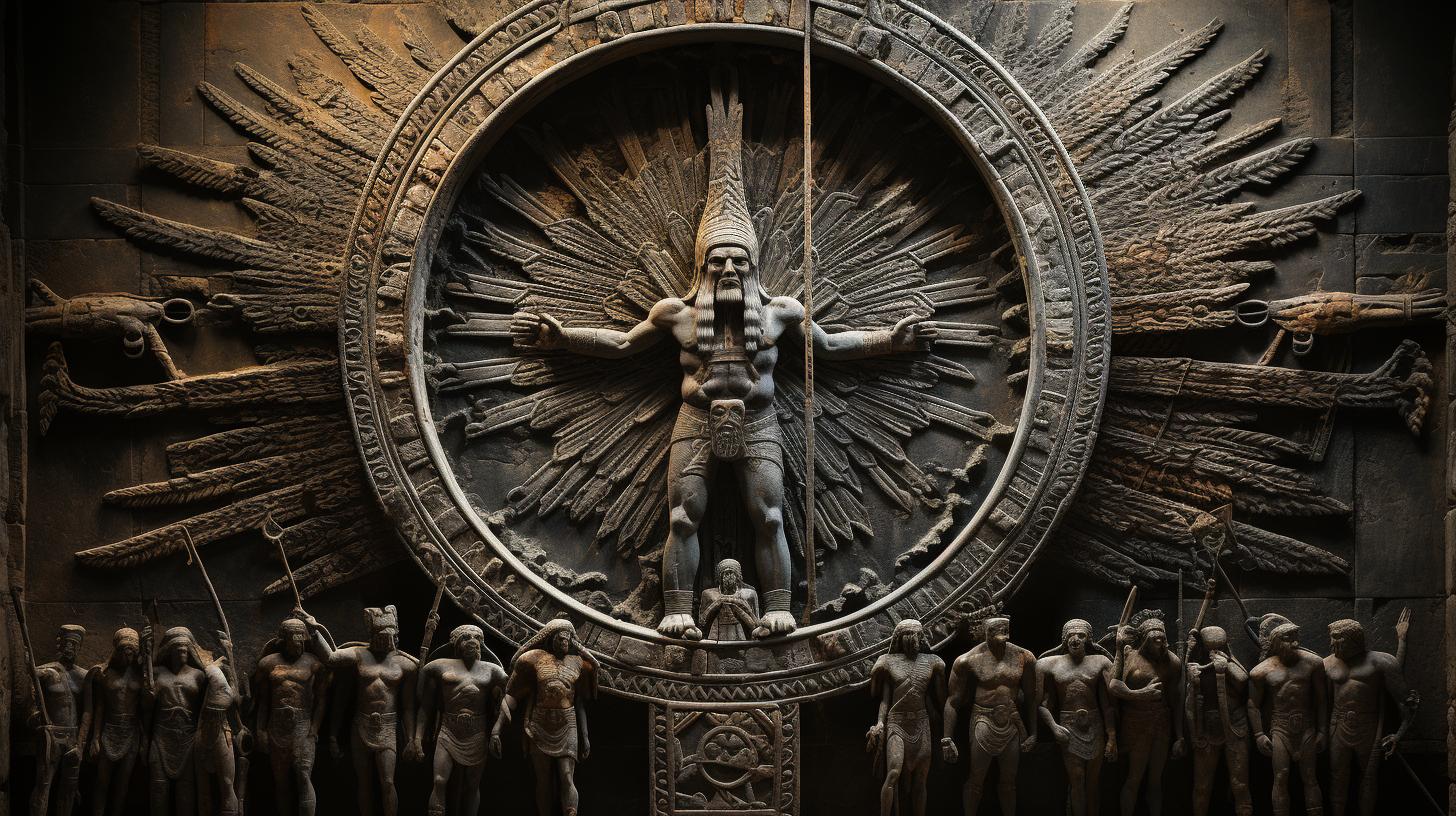‘King Sargon of Akkad: The Mighty Ruler of Ancient Mesopotamia’

Sargon of Akkad was a legendary king who rose to power in ancient Mesopotamia. Born into humble beginnings, he would go on to unify the city-states of Sumer and Akkad, establishing the powerful Akkadian Empire.
Sargon’s conquests and victories expanded his empire’s influence, while his administrative skills ensured efficient governance. His cultural contributions and military legacy left a lasting impact on Mesopotamian history. Understanding the context of ancient Mesopotamia helps appreciate the significance of Sargon’s reign.
In this article, we will delve into the life of King Sargon of Akkad and explore his remarkable legacy.
Sargon of Akkad: Birth and Early Life
Sargon of Akkad, one of the most renowned rulers in ancient Mesopotamian history, has a birth and early life veiled in legend and mythology. Through the passing of time, tales of his humble beginnings and extraordinary rise to power have been passed down.
These stories, although shrouded in mystery, offer captivating insights into the origins of this iconic king.
The Legend of Sargon
In the realm of ancient Mesopotamian lore, Sargon’s origins are narrated through a legendary account. As the story goes, Sargon was born to a lowly mother, possibly a priestess, who placed him in a reed basket and set him adrift on the Euphrates River.
Miraculously, the river carried him to safety, where he was discovered and raised by a humble gardener.
This captivating tale of survival and fate speaks to the extraordinary nature of Sargon’s journey, eventually leading him to become a legendary figure in Mesopotamian history.
The Sumerian King List and Sargon’s Reign
While the legend of Sargon provides a mythical account of his birth, the Sumerian King List offers a more historical perspective. This ancient document, etched on clay tablets, lists the significant rulers of Sumeria and Akkad, including Sargon.
According to the Sumerian King List, Sargon rose to prominence around the 24th century BCE, founding the Akkadian Empire and ruling for approximately fifty-five years. This period of his reign marked a significant turning point in Mesopotamian history, as the empire expanded its power and influence across the region.
The Akkadian Empire: Rise to Power
Sargon’s rise to power led to the establishment of the mighty Akkadian Empire, which greatly transformed the political landscape of ancient Mesopotamia. Through strategic military campaigns and alliances, Sargon solidified his control over various city-states, bringing them under the umbrella of his empire.
The conquests and subsequent governance of Sargon set the stage for the Akkadian Empire’s dominance, showcasing the king’s exceptional leadership skills and administrative acumen. His ability to maintain stability and order within the empire laid the foundation for future rulers and empires to follow.
Sargon the Great: Conquests and Expansion
Sargon the Great, the legendary king of Akkad, was known for his remarkable conquests and the expansion of his empire. This section delves into the details of his military campaigns, the administration of his territories, and the significant impact of his reign.
Unifying Sumer and Akkad
One of Sargon’s notable achievements was the unification of Sumer and Akkad, two prominent regions in Mesopotamia. By assimilating these city-states into his empire, Sargon not only consolidated his power but also created a strong foundation for future expansion.
Wars and Victories
Sargon’s military campaigns were marked by relentless warfare and numerous victories. He led his armies across the fertile lands of Mesopotamia, subjugating opposing forces and expanding his empire’s borders. His strategic brilliance and military prowess secured triumphs that echoed throughout the region.
- Defeat of Lugal-Zage-Si: Sargon’s conquest of the Sumerian king Lugal-Zage-Si brought the city of Uruk under his control, establishing his dominance over southern Mesopotamia.
- Conquest of Elam: Sargon embarked on a successful campaign against the Elamites, capturing their cities and territories, further extending his empire’s reach.
- Subjugation of Mari: The kingdom of Mari fell to Sargon’s forces, solidifying his control over northern Mesopotamia and expanding his dominion.
Administration and Governance
Aside from his military achievements, Sargon’s empire thrived under his efficient administration and governance.
He implemented centralized control, establishing bureaucratic systems that ensured smooth governance throughout his vast territories.
- Infrastructure Development: Sargon initiated various construction projects, improving road networks, fortifications, and irrigation systems. These advancements facilitated trade, communication, and agricultural productivity.
- Legal Reforms: Sargon introduced legal reforms, creating a unified legal system that promoted justice and fairness within his empire.
He standardized laws and procedures, ensuring consistent governance across diverse regions.
- Cultural Integration: Sargon’s rule fostered cultural integration and exchange. He encouraged the assimilation of different cultures, languages, and customs, allowing for a rich and diverse society within his empire.
Sargon’s administrative acumen and focus on efficient governance laid the groundwork for a prosperous and stable Akkadian Empire.
Lieutenant Tom Smith
History Department, University of California
Sargon’s Legacy: Influence and Impact
The reign of Sargon of Akkad left a profound and lasting impact on the ancient world. His influence can be observed in various aspects, including cultural contributions, language development, political and military strategies, as well as the aftermath and succession of his empire.
Cultural Contributions and Language
One significant aspect of Sargon’s reign was his promotion and patronage of art, literature, and architecture. Under his rule, the Akkadian Empire witnessed a flourishing of cultural achievements. Notable works of literature, such as the “Epic of Gilgamesh,” were written during this period, showcasing the depth and richness of Akkadian storytelling.
Sargon’s support for the arts fostered a vibrant cultural scene that continued to thrive long after his reign.
Furthermore, Sargon’s conquests and subsequent empire-building led to the spread and dominance of the Akkadian language throughout Mesopotamia. Akkadian became the lingua franca of the region, unifying diverse populations under a shared mode of communication.
This linguistic influence endured for centuries, even after the fall of the Akkadian Empire, leaving a lasting linguistic legacy.
Political and Military Legacy
Sargon’s political and military strategies revolutionized the concept of governance in the ancient world. His ability to unite disparate city-states under a centralized authority marked a turning point in Mesopotamian history.
Sargon’s innovative administrative systems allowed for efficient rule and enhanced cooperation among regions, leading to unprecedented stability and prosperity.
In terms of military achievements, Sargon’s strategic campaigns and conquests solidified the power of the Akkadian Empire. His professional army, supplemented by advanced military tactics, enabled successful invasions and territorial expansions.
These military triumphs set a precedent for future empires and influenced military strategies throughout history.
Aftermath and Successors
Following Sargon’s death, the Akkadian Empire faced internal struggles and external pressures that eventually led to its decline. However, the empire’s legacy and the lessons learned from Sargon’s reign continued to shape the political landscape of Mesopotamia for centuries.
Successor rulers sought to emulate Sargon’s achievements, and his memory persisted as a symbol of greatness and ambition.
Moreover, the collapse of the Akkadian Empire gave rise to new regional powers and marked a period of significant change in Mesopotamian history. The legacy of Sargon’s empire served as a benchmark for future civilizations, influencing social, economic, and political developments in subsequent eras.
Ancient Mesopotamia: Context and Setting
Ancient Mesopotamia was a historical region located in the eastern Mediterranean, encompassing modern-day Iraq and parts of Syria and Turkey. This region played a vital role in shaping the development of early civilizations.
Its unique geographical features, such as the Tigris and Euphrates rivers, provided fertile land for agriculture and facilitated trade and communication.
The Ancient Near East
Ancient Mesopotamia was part of the wider region known as the Ancient Near East, which saw the rise and fall of numerous societies and empires. From the early Bronze Age to the Iron Age, city-states and empires emerged, each leaving its mark on the political, cultural, and religious landscapes.
Notable civilizations in the Ancient Near East include the Sumerians, Akkadians, Babylonians, Assyrians, and Persians.
Sumerian City-States and the Rise of Akkad
Within Ancient Mesopotamia, the southern region of Sumer was home to a collection of independent city-states. Each city-state had its own ruler and religious practices. These city-states, such as Ur, Uruk, and Lagash, engaged in trade, developed agricultural techniques, and created intricate systems of governance.
In the 24th century BCE, Sargon of Akkad, an ambitious warrior, emerged as a dominant figure in Mesopotamia. Through military conquests, Sargon eventually established the Akkadian Empire, unifying the city-states of Sumer and Akkad.
This empire marked a significant turning point in Mesopotamian history, as it laid the foundation for centralized rule and further territorial expansions.
Mesopotamian Society and Culture
Mesopotamia was a society characterized by its complex social structure and rich cultural heritage. At the top of the social hierarchy were the ruling elites, consisting of kings, priests, and high-ranking officials.
Below them were merchants, artisans, farmers, and laborers. Slavery was also prevalent in ancient Mesopotamia.
Religion played a vital role in Mesopotamian society, with each city-state worshipping its own deities and building elaborate temples as places of worship. The development of cuneiform writing enabled the recording of religious texts, laws, and historical accounts.
Additionally, advancements in architecture, mathematics, and astronomy showcased the intellectual achievements of this ancient civilization.




















